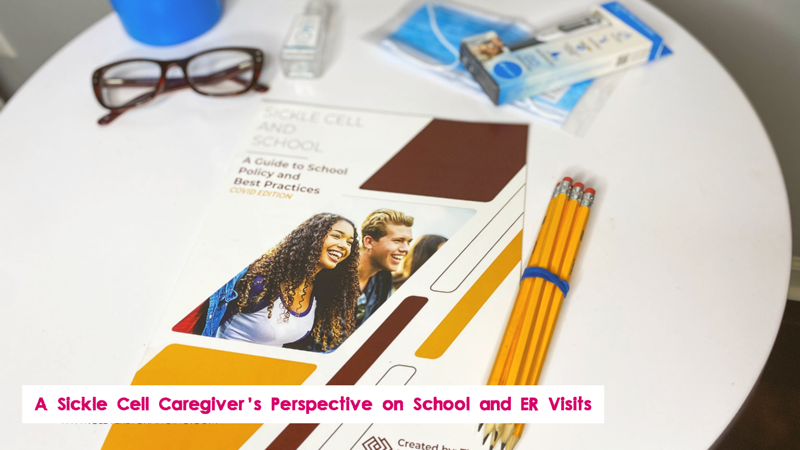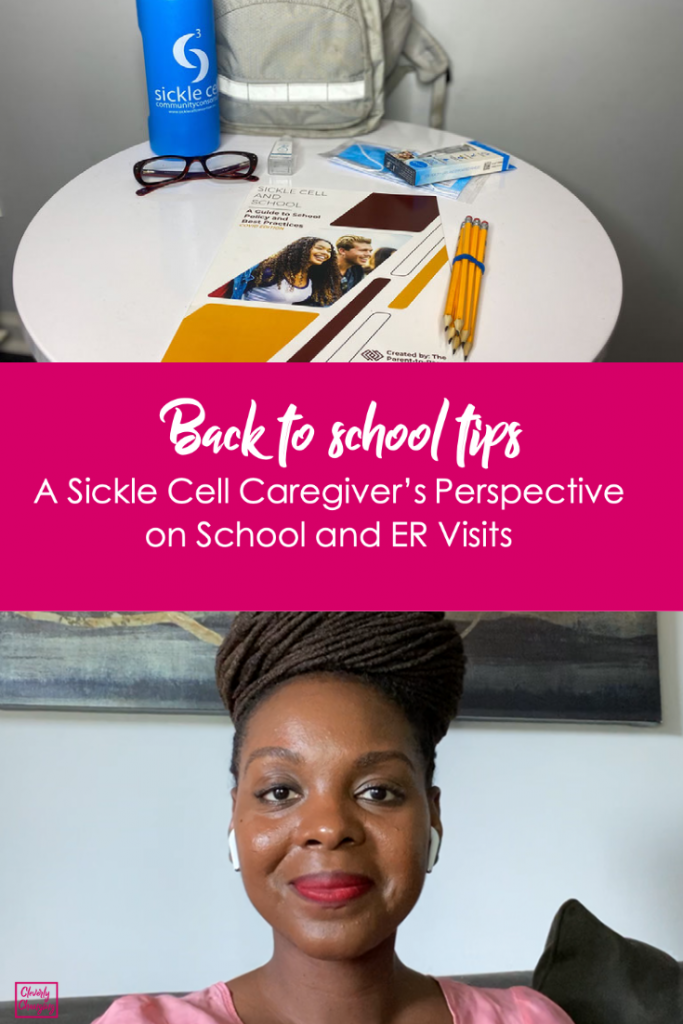Recently I was asked the following questions from a sickle cell advocate that I admire. I’m happy to share my Sickle Cell Caregiver’s Perspective on School and ER Visits because what helps me as a caregiver could help assist others as well.
Can you please share some things you go through with school or the ER In regards to being a Sickle Cell caregiver?
My daughter started school last year prior she had been homeschooled. She was in the 7th grade. She attends a private school, but I had to meet with all of her teachers and her principal. I gave the school a copy of her health history form that was required, and I have them a copy of Sickle Cell and School: A Guide to School Policy and Best Practices Covid Edition. The booklet is from the Sickle Cell Community Consortium. In the back of the book is a Health Plan Template that I completed on my daughter’s behalf. The plan includes a picture of her, her grade, gender, condition, date of plan, review date, parent/guardian contacts, emergency contact, campus key person, primary care physician, and the steps to take regarding prevention. It also includes medication, pain management, and stakeholders regarding the individual health plan (school nurse, teacher/administrator, sickle cell nurse/social worker, and school staff that have a copy of the plan).
We discuss what they should look out for and how to contact me if they have concerns. We discussed the need for my daughter to dress in layers, keep a water bottle at her desk, and be allowed to the restroom often. I also told them that if she were tired, she would be allowed to stay indoors and rest, so they should communicate well about how she was feeling. We also talked about her frequent doctor’s appointments and how she will need to be excused for those appointments.
Last year was great, and her teachers stayed in communication with me regarding their concerns. I’m looking forward to this upcoming back to school meeting with her instructors.
My daughter’s experience going to the Emergency Department
Regarding going to the ER, my daughter is still in pediatrics, so we call ahead (I call her hematologist or primary care physician first, and her doctors then connect with the doctor at the ED that she is going to). Then they admit her and see her in an Emergency Department room. I have only taken her to a hospital outside her regular care facilities once, and we had a terrible experience, so I have not gone to hospitals where I don’t have a relationship with physicians I don’t know.
Can you also share what you go through with your mental health as a caregiver and how everything impacts your job/work life?
Almost a year ago, I signed up for therapy regularly because the sickle cell can take a toll on the family mentally and physically. Before having a therapist, I sometimes felt mentally drained. I not only had to look after my child and learn the best care she needed, but I also had to learn new medical terminology and how her body worked. Then I learned how to navigate private insurance changes, bills, and pharmacy headaches. In addition, to living with sickle cell disease, my daughter also has Type 1 Diabetes, an unpredictable illness. Mentally I have to learn how to balance advocacy, work, parenting, life, and working.
When my daughter was three months, I quit my job in corporate America and became a work-from-home parent. A few weeks after finding out that my daughter had sickle cell disease I wanted to make sure she wasn’t exposed to a lot of germs in daycare so I spoke to my husband and made the decision to pivot.
Although, I was forced into entrepreneurship to have the flexibility I needed to be a good parent. I embrace entrepreneurship as an author, Podcast producer, freelance writer, and professional speaker. As a result, of raising a child with a chronic illness, I had to redefine what success is for me. For me, it is having my health insurance, paid bills, funds for retirement, and money to put aside for my daughters’ futures.


